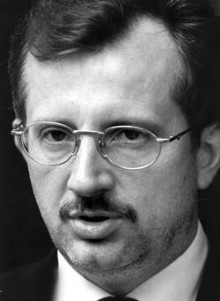With the latest wave of enlargement in 2004 the European Union took a big step forward in expanding security and prosperity throughout the European continent. The enlargement means that the external borders of the EU have changed. We have acquired new neighbors and moved closer to old ones. These circumstances have created both possibilities and challenges. The European Neighbourhood Policy (ENP) is a response to the new situation. The ENP refers to already existing neighbors and those countries that have become closer to the European Union as a result of the enlargement: Ukraine, Belarus, and Moldova as well as Armenia, Azerbaijan, and Georgia.
The ENP brings an added value that exceeds the bounds of existing cooperation both for the partner countries and the EU. It brings the prospect of moving from cooperation to a certain level of integration. It establishes ways and means with the help of which partner countries take a more active part in key aspects of EU policy and programs. The ENP improves the scale and intensity of political cooperation with partner countries and makes it more efficient.
From the viewpoint of the European Parliament, strengthening relations with our immediate neighbors in the East is also a real challenge for us. We must create and intensify regional cooperation between the European Parliament and the countries embraced by the European Neighbourhood Policy. Taking into consideration the strategic importance of this region for the European Union’s own future, new methods of parliamentary cooperation and new ways of dialogue with the civil society in these countries should be developed.
The main idea behind the development of this dialogue lies in promoting Europe and the principles of European integration. This will also help to promote these values on all levels, particularly on the local level.
To start this active cooperation and dialogue between the European Parliament and civil societies in the countries of our Eastern neighbors, my colleagues and I have come up with the idea to hold a conference that will be organized with the participation of delegates from the interparliamentary cooperation committees of our parliament and the countries mentioned above. This conference will take place in Brussels in June 2008. This will be a starting-point that may be continued by further concrete projects, depending on the will of the participants. At the plenary session of the European Parliament in May 2008 Danilo Turk, the president of Slovenia, which holds the presidency in the European Union, underlined that every single country needs to strengthen its capacity to meet the criteria of membership, and the region as a whole needs a mechanism within the framework of which common problems can be discussed and resolved.
Of course, the European Neighbourhood Policy is part of the response to the challenges that the countries embraced by this policy are facing. Despite the fact that some of them have ambitions for membership while others do not, the ENP can help create such a mechanism.
In his speech President Turk emphasized that Ukraine and Moldova need a prospect of EU membership and that such a prospect should not be denied, the way some political forces are trying to do. “The feeling of exclusion evokes injured feelings, and this gives rise to instability. This is the very reason why we should maintain a pragmatic approach and think about further enlargement in view of the need for the EU as a global player,” he said.
Thus, pragmatism should become the main principle that will guide both sides in their actions. The time has now come for Ukraine to take a step toward an open public dialogue offered by the European Parliament, an EU institute that has the friendliest attitude to Ukraine. Until now Ukraine’s approach to the ENP has been very unclear and contradictory, which has meant that Ukraine is deprived of the chance to have a positive influence on the development of cooperation between the European Union and its Eastern neighbors. At worst, it could mean slowing down the process of integration. Regardless of Ukraine’s end goal, which is to become a full-fledged member of the EU, the Ukrainian government has no grounds for not taking advantage of the ENP to reach its goal.
So as not to appear too gloomy, I would like to add that I truly hope that Ukraine re-evaluates its current attitude and responds to our invitation. Then we can meet in Brussels.
P.S. Some people in Ukraine say that the European Neighbourhood Policy by definition cannot be applied to Ukraine because it is a European country. They rightly point out that the ENP should be called the EU Neighbourhood Policy. I agree that this formulation is not adequate, but we have to deal with this. On the other hand, we cannot allow semantics to ruin the efforts to achieve a mutual rapprochement.







